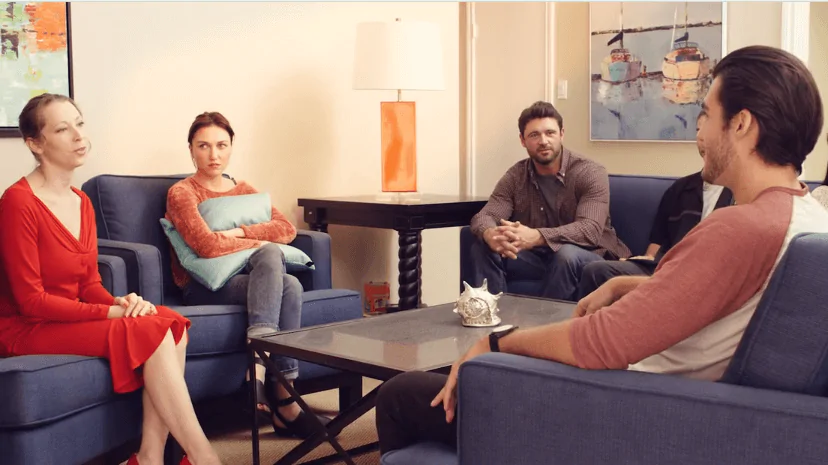24/7 Helpline:
(866) 899-221924/7 Helpline:
(866) 899-2219
Learn more about Klonopin Rehab centers in Spring House
Klonopin Rehab in Other Cities

Other Insurance Options

EmblemHealth

United Health Care

Covered California

Choice Care Network

CareSource

GEHA

CareFirst

Multiplan

AllWell

Horizon Healthcare Service

WellCare Health Plans

ComPsych

Magellan Health

Humana

Amerigroup

Group Health Incorporated

Evernorth
Beacon

American Behavioral

Providence









NHS Montgomery County
NHS Montgomery County is a private rehab located in Lansdale, Pennsylvania. NHS Montgomery County sp...

Right Direction Counseling
Right Direction Counseling is a private rehab located in Willow Grove, Pennsylvania. Right Direction...

Indian Creek Foundation
Indian Creek Foundation is a private rehab located in Souderton, Pennsylvania. Indian Creek Foundati...

Rehab After Work
Rehab After Work is a licensed intensive outpatient drug and alcohol treatment program which has bee...

Aldersgate – Counseling Services
Aldersgate - Counseling Services is a non-for-profit counseling clinic located in Willow Grove, PA. ...

Healthcare Options
Healthcare Options is a private rehab located in Willow Grove, Pennsylvania. Healthcare Options spec...

NHS Human Services
NHS Human Services is a private rehab located in Lansdale, Pennsylvania. NHS Human Services speciali...

Renew Family Services
Renew Family Services is a private rehab located in Elkins Park, Pennsylvania. Renew Family Services...























































































































































































































































































































































































































































































































AA – Alcoholics Anonymous
AA – Alcoholics Anonymous is a non-profit rehab located in Souderton, Pennsylvania. AA – Alcoholics ...

Integrative Life Services
Integrative Life Services is a private rehab located in Haverford, Pennsylvania. Integrative Life Se...

Malvern Institute
Malvern Institute is located in Willow Grove, Pennsylvania. Malvern Institute provides adult interve...

Youth & Family Services
Youth & Family Services is a private rehab located in Green Lane, Pennsylvania. Youth & Family Servi...

Main Line Recovery
Main Line Recovery is a private rehab located in Haverford, Pennsylvania. Main Line Recovery special...

Behavioral Analysis and Therapy Partners
Behavioral Analysis and Therapy Partners is a private rehab located in Bala Cynwyd, Pennsylvania. Be...

Discovery House
Discovery House is a private rehab located in Huntingdon Valley, Pennsylvania. Discovery House speci...

Guidance for Growing
Guidance for Growing is a private rehab located in Souderton, Pennsylvania. Guidance for Growing spe...

All In Solutions Counseling Center
All In Solutions Counseling Center provides each and every one of their valued clients with a highly...

Enlightened Solutions Philadelphia
Enlightened Solutions offers intensive outpatient treatment for individuals dealing with substance a...

Renew Family Services
Renew Family Services is an intensive outpatient facility that offers treatment for individuals, gro...

Rehab After Work
Rehab After Work offers intensive outpatient and outpatient treatment for adolescents and adults wit...

Liberation Way
Liberation Way - Bala Cynwyd's reality-based treatment model utilizes a holistic model of care that ...

God’s Treasure House Ministries
God's Treasure House Ministries is a non-profit organization established to provide a comprehensive ...

































































































































































































































